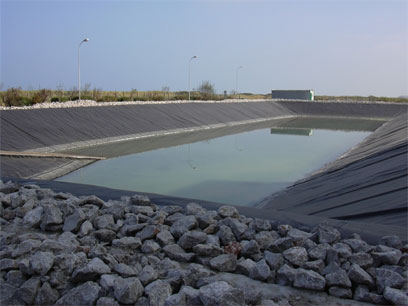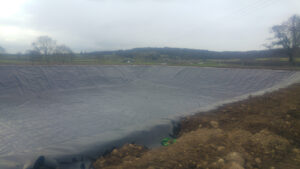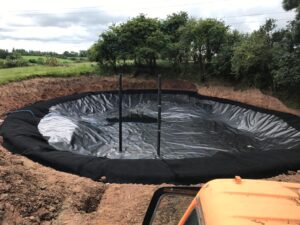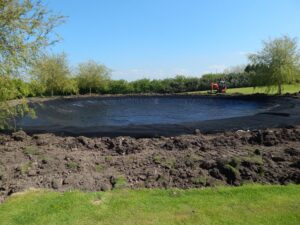Enhancing Water Irrigation Efficiency: The Crucial Role of Lining Systems in Reservoirs
Water is a precious resource, especially in the context of agriculture where efficient irrigation methods can significantly impact crop yield and sustainability. Reservoirs play a pivotal role in storing and distributing water for agricultural purposes, but their efficiency heavily relies on the lining systems employed within them. Lining systems in reservoirs have emerged as a fundamental component, revolutionising water storage and management practices, particularly in irrigation.
Importance of Lining Systems in Reservoirs
Reservoirs are primary storage units for water, often located in regions facing erratic rainfall patterns or water scarcity. However, without proper lining systems, these reservoirs face challenges like seepage and water loss due to permeability of the soil or bedrock beneath them. Lining systems act as protective layers, preventing seepage and ensuring efficient water storage.
Mitigating Water Loss:
Lining systems, such as geomembranes or clay liners, form impermeable barriers that inhibit water from infiltrating the ground. This significantly reduces water loss due to seepage, allowing for better water retention within the reservoir. As a result, more water remains available for irrigation, contributing to enhanced agricultural productivity.
Conservation of Water Resources:
By reducing seepage and evaporation, lining systems aid in conserving water resources. Water saved from these preventive measures can be utilised for irrigation across larger areas, supporting sustainable agricultural practices and mitigating water scarcity issues.
Types of Lining Systems:
Geomembranes:
Geomembranes, made of synthetic materials like polyethylene or PVC, offer excellent impermeability and durability. These liners are fabricated off-site and installed within the reservoir, providing a reliable barrier against seepage. Their flexibility allows for adaptation to various reservoir shapes and sizes, ensuring efficient water containment.
Clay Liners:
Natural clay liners are another cost-effective solution. They utilise the low permeability of certain types of clay to prevent water seepage. Proper compaction and maintenance are crucial for their effectiveness. While cost-efficient, clay liners may require more frequent monitoring and maintenance compared to geomembranes.
Concrete Lining:
Concrete lining, although more expensive and labour-intensive, provides a durable and long-term solution. It offers exceptional resistance to seepage and erosion, ensuring the integrity of the reservoir structure. However, its installation requires skilled labour and meticulous planning.
Advantages Beyond Seepage Prevention:
Environmental Impact:
Lining systems not only conserve water but also prevent soil contamination caused by seepage of chemicals or pollutants. This protects the surrounding ecosystem and groundwater quality, promoting environmental sustainability.
Increased Efficiency:
With reduced water loss, lining systems enable more precise water distribution for irrigation purposes. Farmers can optimise water usage, ensuring each drop counts for maximum crop yield.
Conclusion:
Lining systems in reservoirs play a pivotal role in revolutionising water irrigation. Their ability to prevent seepage, conserve water, and facilitate efficient irrigation practices is invaluable for agricultural sustainability. By investing in these systems, we not only ensure better water management but also contribute to environmental preservation and increased agricultural productivity. As we navigate global challenges related to water scarcity, adopting and innovating in lining systems will continue to be imperative for sustainable water management in agriculture.
To find out more about our products and services and how we can help you, please contact us using the below –
Tel: 01695 228626
Email: enquiries@enviroseal.co.uk





